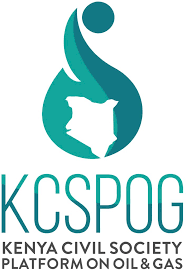Katiba At 11: The Gains and Challenges Towards a Sustainable Oil and Gas Sector
By Emmaqulate Kemunto
The Constitution of Kenya provides for the following rights and principles which are crucial for a sustainable oil and gas sector in Kenya: transparency, accountability, democracy, participation of the people, right of access to information, right to a clean and healthy environment; right to property. Although there has been some progress in their implementation and enforcement since 2010, much still needs to be done as highlighted below:
- Participation of the People
Over the years, judicial bodies have increasingly upheld the central role of public participation in sustainable natural resource and environmental decision-making, landmark decisions being the Lamu Coal Plant and the LAPSSET decisions. The 2010 Katiba has been central in ensuring the protection of environmental rights as evidenced by the Lamu Coal Plant decision.
However, much remains to be done:
- We lack a harmonized law on public participation. None of the Public Participation Bills that have been presented to Parliament have seen the light of day. A National Policy on Public Participation drafted in 2018 is yet to be adopted.
- Lack of implementation of court orders, as continues to be the case with the LAPSSET decision.
- Participation needs to be made more meaningful and inclusive of all groups, including minority groups. This challenge was recognized in the draft 2018 public participation policy which proposes deliberate formulation of programmes within stakeholder engagement strategies to ensure the participation of marginalized groups.
- Access to Information, Transparency, and Accountability
Access to information is continually being enforced by courts as an essential element towards meaningful public participation, and in asserting human rights such as the right to a clean and healthy environment and the right to property, and livelihoods. For example, in the Friends of Lake Turkana Trust case on the Gibe III hydroelectricity deal, the Government of Kenya was ordered to disclose all agreements with the government of Ethiopia in relation to the deal. The National Environment Tribunal, in the Lamu Coal Plant case upheld the role of access to information in public participation and in asserting the right to a clean and healthy environment.
There has been enactment of the Access to information Act, and current, Regulations on Access to Information are under review.
A study conducted by Natural Justice indicated an increase in response to ATI requests made by civil society organisaitions from 30% in 2016 to 61.50% in 2019.
Challenges in gaining access to information
- The holder of the information has the sole discretion to determine what information is exempt from access. Consequently, State entities often decline to grant access to information claiming confidentiality, among other reasons. Confidentiality has been the go-to excuse whenever access to contracts on public resources and of public interest is sought. An example being the denied access to the SGR contracts; and the Turkana Oil contracts. This is despite Kenya’s Petroleum Act stating that a Production Sharing Agreement is a Public Document. KCSPOG has been seeking access to the Turkana oil contracts for a long time now in vain.
- Lack of access to such crucial decision-making instruments hinders transparency and accountability within the oil and gas sector.
- The mode of disseminating information to local communities remains a big challenge. If information is disclosed, it is often available in bulky and technical reports, rarely in communities’ local languages which defeats the intended purpose. This challenge was reiterated by community members during KCSPOG’s community capacity building workshops.
- Right to property and Community Land Accusation
The Constitution creates a community land ownership regime, whose full implementation was to follow the enactment of the Community Land Act, 2016. However, to date, most community land in Kenya is yet to be registered owing to implantation delays. This is presenting a big challenge to communities who are and will be affected by the Turkana Oil Project, including those along the Lamu Lokichar Crude Oil Pipeline corridor. Most of these communities old their lands communally. Delayed implementation exposes these community to challenges such as valuation and compensation associated with compulsory acquisition of unregistered community land.
While we celebrate the wins and gains made in the realization of the above rights and principles in promoting a sustainable oil and gas sector in Kenya, we remain concerned of the slow progress in their full implementation. We continue to advocate for and raise awareness for full implementation of the Constitution for sustainability, transparency, accountability, and inclusivity in Kenya’s oil and gas sector.
